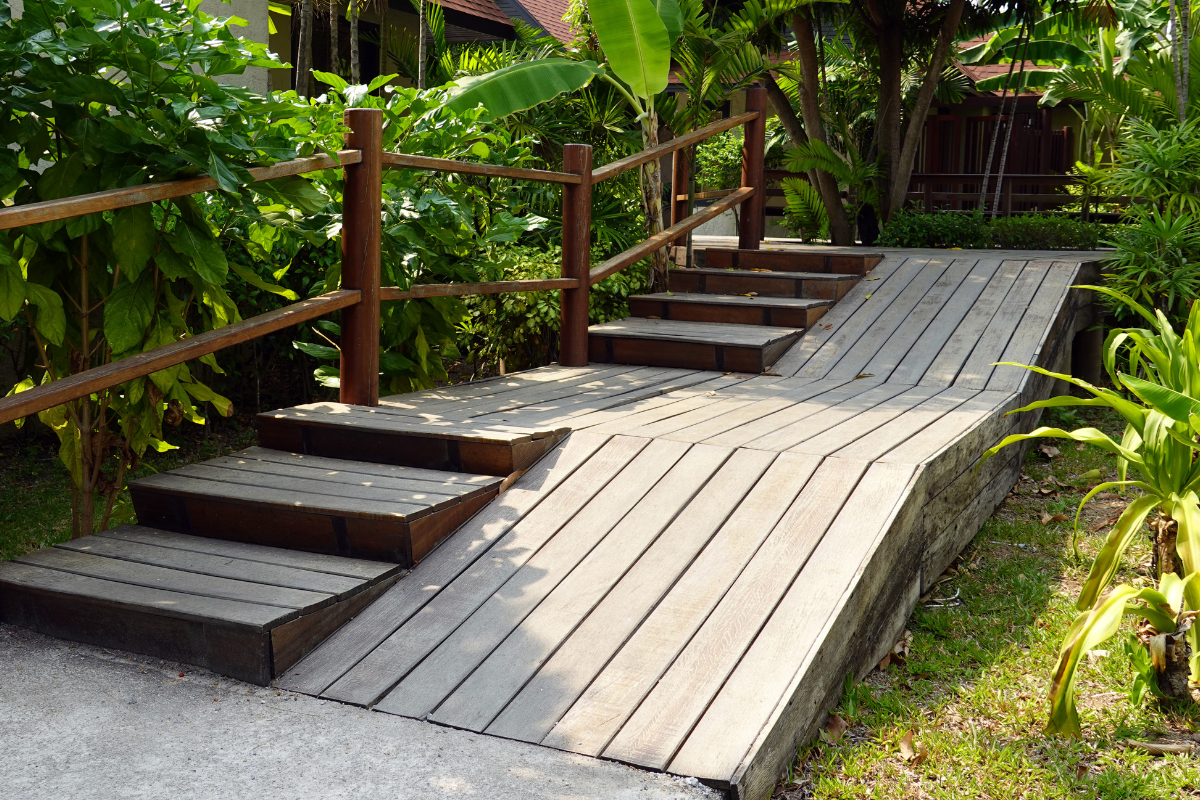In the highly competitive hospitality industry, tracking, analyzing, and optimizing revenue are key...
Embrace Accessibility: Creating an Inclusive Hotel Experience for All
The tourism industry plays an important role in connecting people and opening up new experiences. However, for many people, the travel experience can be difficult, even impossible, due to accessibility barriers. The hospitality industry, as the key to travel, has a responsibility to ensure that everyone, regardless of their accessibility, can enjoy a fulfilling and memorable holiday. So how should we create a hotel experience to keep up with the trend of accessible tourism?
Why Is Accessibility Important?

Accessibility is more than just complying with regulations, it is about creating spaces and services that welcome everyone, celebrate diversity and promote inclusion in the community. When hotels are ready for accessibility, this means they open the door to a large number of potential guests from the tourism market, including:
- Guests with disabilities: According to the World Health Organization, 15% of the world's population lives with some form of disability. This is a huge market with underserved tourism needs and desires.
- Elderly: Elderly travelers are becoming more active and interested in exploring the world. However, they may have many challenges with mobility, vision and hearing, so requiring appropriate services and amenities is a priority for this guest group.
- Families with children: Traveling with children requires flexibility and thoughtful amenities. Accessible hotels meet the needs of the whole family, from safe play areas for children to spacious spaces suitable for baby strollers.
- Guests with temporary needs: Anyone can experience mobility or sensory limitations for a limited period of time due to accident, injury or pregnancy. An accessible hotel will help everyone feel comfortable and supported in these situations.
Important Elements of an Accessible Hotel
To create a comprehensive hotel experience, it's important to consider the different elements of your property and services. Here are some important areas hotels can focus on:
1. Access Room
- Space and Layout: Ensure that rooms are spacious enough to accommodate wheelchairs, elements of this room will include wide doors, clear walkways and easy access to all features in room.
- Bathroom Amenities: The hotel features bathrooms with grab bars, walk-in showers, and convenient sinks. Consider installing a shower chair and make sure all amenities are within reach.
- Furniture and Fixtures: The bed should be at the appropriate height to easily transfer from a wheelchair. Light switches, thermostats, and other controls should be easy to reach without having to reach high or use excessive force.

2. General Areas
- Entrances and Walkways: There should be ramps and automatic doors at all entrances. Make sure these areas are well lit and free of obstructions.
- Reception and Lobby: The reception desk should be at a height that is accessible to guests in wheelchairs. Consider installing an assistive listening system or providing alternative communication methods for guests with hearing loss.
- Dining Area: Arrange tables and chairs to allow wheelchair access. Menus should be available in large print and Braille, and staff should be trained to assist guests with visual impairments.
3. Communication Amenities
- Website and Reservation System: A hotel's website should comply with the Web Content Accessibility Guidelines (WCAG) to help all potential guests easily access information and make reservations. This includes providing text descriptions for images, ensuring keyboard navigation, and providing compatibility with screen reading software.
- Guests Service: Train staff to quickly respond to the needs of disabled guests, such as understanding how to assist without offending and being polite and respectful to guests booking rooms.
- Emergency Procedures: Ensure that emergency information is accessible to all guests. This may include providing visual alarms for guests with hearing loss and ensuring that evacuation procedures are appropriate for customers with mobility challenges.
Implement Accessibility Strategy
Creating a comprehensive hotel experience requires the hotel to have a well-thought-out marketing strategy. Here are steps to help hotels get started and strategize:
1. Assess Current Accessibility
Conducting an accessibility audit of your hotel property will help you identify areas that need improvement. Hotels can do this in-house or hire a professional consultant. Use checklists and guidance from relevant regulatory frameworks to ensure a comprehensive assessment.
2. Interaction with the Community
Hotels can contact disability organizations and consult with them on how to make your hotel more accessible. These organizations can provide useful knowledge and can even provide training advice to hotel staff.
3. Employee Training
Professional training is an important factor in creating a comprehensive environment for all guests. All staff need to understand the importance of accessibility and be equipped with the skills to better support guests with disabilities. From the receptionist to those in the cleaning, maintenance and management departments, everyone should be thoroughly trained to provide the best experience for all guests.
4. Promote Your Accessibility Features
Once you have the right amenities, you should let potential guests know about your hotel's accessibility features. Feature them on your website, in marketing materials and through online travel agencies. Additionally, positive word of mouth from satisfied guests can be a powerful marketing tool to help hotels gain new guests.
5. Continuous Improvement
Accessibility is not a one-time project but an ongoing, life-long commitment. Therefore, regularly check and update your facilities and services to keep up with changing standards and guest needs. Collect feedback from target guests and use it to make further improvements.

The Benefits of a Comprehensive Hotel Experience
Accessible tourism is a potential market for development. Hotels investing in accessibility brings many benefits such as:
Enhance Reputation: A hotel known for its inclusivity and accessibility can build a strong reputation. From these highlights, positive reviews, returning guests and referrals through old guests will also increase.
Expand Your Guest Base: Embracing Accessibility means your hotel is opening its doors to a broader guest base, including people with disabilities, their families and friends. This will help increase room occupancy rates and the potential to grow hotel revenue.
Legal Compliance and Risk Management: Meeting legal accessibility requirements helps hotels avoid risks such as potential lawsuits and penalties. This also demonstrates the business's commitment to social responsibility and ethical business practices.
Guest Satisfaction: An inclusive environment will make all guests feel appreciated and comfortable when booking and staying. Satisfied guests will be more likely to return and recommend your hotel to others.
Conclusion
Embracing accessibility is more than just complying with the law; it's also about welcoming every guest with open arms. If they keep up with this travel trend, owners or managers can make their hotels the preferred choice for these special guests. Not only does this enhance your hotel's reputation, it also contributes to a more inclusive society where everyone can enjoy the joys of travel.
Do you want to know new trends and information of the hotel industry? Follow Hotel Link Blog to keep up with the latest information today!



